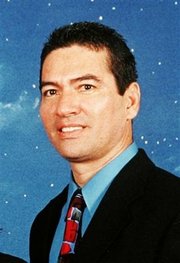What possessed me to take on such a huge project as this website? What makes me think that I’m qualified to do it? Maybe it’s partly being in my sixties, but mostly it’s my personality that I feel compelled to challenge the system when I see or hear things that I know are wrong.
I have been involved in many research projects over the years including being the principal investigator for many medication studies. One of the things that this teaches is a systematic and thorough approach to diagnosis and careful monitoring of response to treatment. For these studies to be useful, patients need to be randomly assigned to either a placebo or an active treatment, and patients and researchers need to be blinded to who is getting what (i.e. double-blind).
Another fun thing is when a medical treatment is believed to be useful for something, but in a placebo controlled study, the placebo does better. This is what happened when progesterone was studied for PMS and when Neurontin was studied for bipolar disorder. This is the way science works. If the findings don’t support theory, we modify the theory, or we come up with a plausible explanation.
I wrote my 1st prescription as a psychiatry extern in 1966. Ever since then my patients have been my best teachers. "This medicine is great. It’s changed my life." Or, "this medicine made me sick, or numb or crazy." There are few things more satisfying than someone saying, "Dr. Jones I want to thank you. You have helped me make my life better." Implicit in that statement is the patient taking responsibility and giving themselves credit for their progress.
I believe one of my best talents is knowing a great teacher when I hear one and then spending as much time as I can learning from them. As Carl Jung supposedly said to Freud, "Even a midget on the shoulders of a giant can see further than the giant." [Probably not relevant for our purposes – Freud apparently was not flattered, because he’s reported to have responded, "But a gnat in the giant’s hair can’t see anything."] I’m not particularly a big fan of Freud.
When I was in training in the 60’s, psychoanalysis was the dominant force in psychiatry and my field of interest – medical psychiatry – was just beginning. To Freud’s credit, he did say that ultimately the definitive treatments would be medical. Freud did spend several decades listening to patients and making observations. One of my favorite Freud comments was "a boy who feels that he is his mother’s favorite has a feeling of specialness and often grows up to become very successful."
One of my mentors, Dr. Asa Deloach taught me, "If what you’re doing is not working, do something else. Even if it’s wrong, it will get you unstuck." Through trial and error over my career, I have found the treatments that usually work best. Most importantly, I have found the ones that keep working long term (I will share all of these with you as we go along).
From Dr. John Roberts, a surgeon I ran with when stationed at Sheppard Air Force Base the last year of the Vietnam War, I learned "a difference that makes no difference is no difference." In other words, don’t obsess about what type of schizophrenia it is – we only have one type of treatment. On the other hand, bipolar depression may look like the more typical stress induced depression, but the treatments are very different.
I love this stuff! I love learning and I love teaching. In 1969, I presented my first grand rounds to the Department of Psychiatry, University of Texas Southwestern Medical School. I had been inspired by Dr. Bob Beavers to appreciate the power of the family dynamic. The topic I chose was the role of family constellation in the development of personality. I was a first born with two younger sisters. Imagine how different the experience of being the youngest of five sons is. I still believe the family dynamic is one of the main determinants of who we are – perhaps second only to genetics.
I have been teaching ever since. I teach doctors, and I teach patients. I have given over 1200 talks. I have spoken in most of the states of the U.S., Canada, and Puerto Rico. I have spoken to national organizations and the National Institute of Mental Health. I’ve served on the clinical faculty of the UT Southwestern Department of Psychiatry, and for years, I was the medical director of the Anxiety Disorders Clinic of the Southwest (which had one of the two intensive inpatient programs in the country).
As I travel and speak and in my private practice, I spend a lot of time and energy exposing and debunking wrong information. It drives me crazy when I hear things or read things that I know are wrong. Not long ago, the media reported on the Women’s Health Initiative Study. The media spin led to forty percent of women stopping their hormones. Ann Curry (of the "Today Show") said a lot of women are angry about doctors prescribing estrogen for menopausal women. But this study didn’t apply to most women, and the media didn’t report on the studies that showed significant benefits. I see the benefits of hormone treatments almost every day in my office. Unfortunately, the media is motivated by ratings, controversy, and sensationalism – not truth and practical information.
The sciences of medicine are going through an explosive period of growth. We have learned more in the last 10 years about the mind than in all of previous history, and yet we are just beginning. I can’t wait to see what we learn next. And whatever it is, I will share it with you, so you can make more informed decisions about your health, your life.

